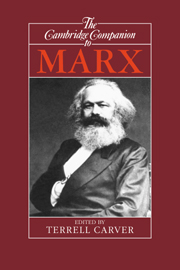2 - Critical reception
Marx then and now
Published online by Cambridge University Press: 28 May 2006
Summary
At first glance Karl Marx's reception seems to pose few real problems. Marxism, the doctrine he inspired, has, on any reckoning, been enormously influential. If today, in E. J. Hobsbawm's words, “the shadow of Karl Marx presides over a third of the human race” this is surely no mean accomplishment for a theorist who died in relative obscurity in 1883 (Hobsbawm, 1987: 336). Marx's legacy is, in any case, intellectual as well as political, rather as he himself might have expected. “Over the whole range of the social sciences” says David McLellan in The Blackwell Encyclopedia of Political Thought, “Marx has proved probably the most influential figure of the twentieth century” (Miller et al., 1987: 322). There is no reason to regard this claim as exaggerated. Ever since its inception, Marxism has stimulated debate across the social sciences. But it did so in an unprecedented way, which was both advantageous and disadvantageous to its reception. We have only to contrast the scholars who have tackled Marxism but have not lent their names to political movements at the same time.
- Type
- Chapter
- Information
- The Cambridge Companion to Marx , pp. 23 - 54Publisher: Cambridge University PressPrint publication year: 1991
- 8
- Cited by

